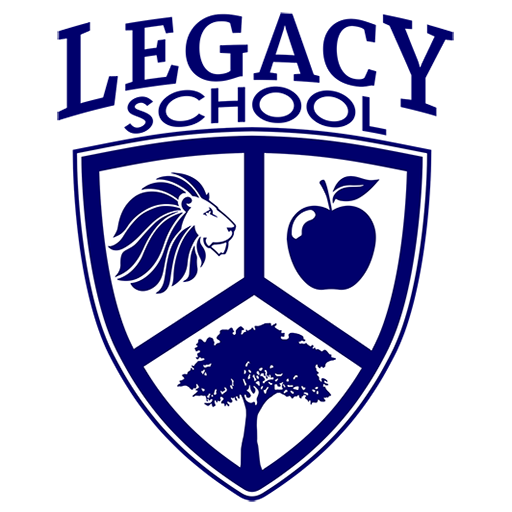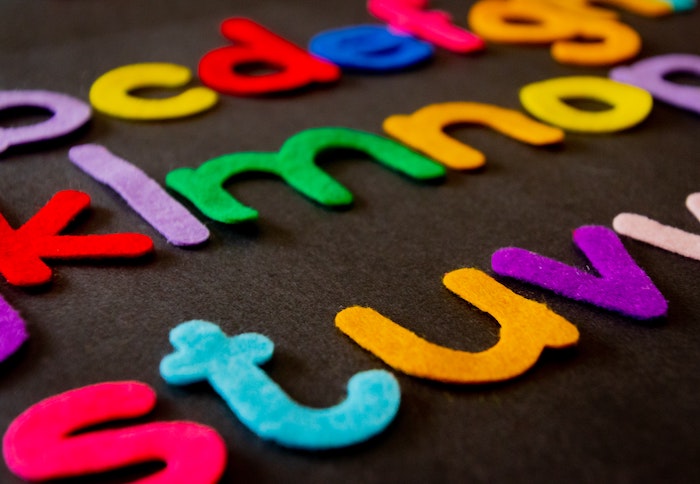“Now I know my A, B, C’s” … You may know your ABCs, but do you know Legacy School’s A, B, C’s of school success? From how academic progress is measured to zealous teachers, get to know why Legacy is an excellent choice for your child’s education.
Legacy School’s ABCs of School Success
A- Academic progress is measured through authentic assessment of each student. This type of assessment refers to integrating learning and assessment, ensuring student needs get met. Authentic assessment is ongoing and represents the beginning, and ending points of each skill set or standard taught.
B- Building a school community links students, teachers, and parents together. Celebrations at school, fun gatherings, and outreach to the larger community give us a sense of self-worth and promotes helpfulness and responsibility.
C- Collaboration between school and parents is fundamental for a student’s education. When a student’s family can communicate with their child’s teacher, both can work together to build a relationship and create an optimal learning environment at home and school.
D- Differentiated instruction allows each child to learn on their level, at their own pace. Instruction can be retaught for students that need additional support yet accelerated for students needing to be challenged. This framework for teaching makes school achievement more attainable for students with varying learning styles.
E- Exceptional teachers are vetted to determine whether their philosophy matches the school’s practices. Outstanding teachers are willing to professionally share their skills, knowledge, and expertise while being positive role models to staff and students. They consistently show enthusiasm for teaching while participating in ongoing learning in education.
F- Flexible seating is carefully designed seating inside the classroom to reflect life outside the classroom. Teachers create spaces that allow students to choose their best learning location, whether near the ground on a pillow, stretched out on a futon, cozied up on a chair, or sitting at a round table.
G- Gardening provides opportunities for outdoor learning in which students take ownership of a project that fosters a beginning, middle, and end. Gardening is an active encounter where students learn through participation.
H- Hands-on learning allows children to discuss, interact with, and genuinely engage with every lesson. Learning then becomes meaningful to the students.
I- Inquiry-based learning refers to a transformation of the traditional classroom. Students are encouraged to participate in group work to learn from their peers and participate in forms of guided learning, which an instructor delivers. This form of learning enhances comprehension—rather than memorizing facts and taking notes; students are now encouraged to discuss ideas with their peers. This form of learning also allows students to take ownership of their education and increases their engagement with the content.
J- Justify grading to parents by presenting a portfolio at parent/teacher conferences. Using data from authentic testing and examples of work helps parents understand why their child received the grade given.
K- Kindness is celebrated and expected. Being friendly, generous, and considerate transforms the atmosphere of a school. Practicing sincere and voluntary acts of kindness is best reinforced in a manners-based social and emotional learning program.
L- Literacy-based learning strives to integrate literacy in all curricular and subject areas. Students develop comprehension skills by speaking, listening, reading, and writing about the content in classes outside the reading classroom.
M- Modification to curriculum provides multi-level instruction to students. There is no recipe for adapting a general education curriculum to meet each student’s needs. Each teacher, student, and classroom is unique, and adaptations are specific to each situation. These modifications include accommodations, determining how a topic is taught, engineering the physical environment for learning, and then evaluating the effectiveness of those adaptations.
N- Necessary skills learned within the classroom allow students to be lifelong learners. Some of these skills include but are not limited to:
- Creativity
- Problem Solving
- Critical Thinking
- Leadership
- Communication
- Collaboration
- Information Management
- Adaptability
- Curiosity
- Reflection
O- Outdoor education engages the five senses and promotes decreased anxiety. Not only does outdoor education enhance our moods, but it also encourages us to be physically active.
P- Project-based learning takes the place of the typical curriculum and allows students to become managers of their learning while still being guided by an experienced teacher. Project-based learning is a teaching method in which students gain knowledge and skills by working for an extended period to investigate and respond to an authentic, engaging, and complex question. The teacher drives the question, while students are encouraged to take responsibility for their work. This allows students to go in a direction on their own but still stay on course with the question at hand.
Q- Quality educators are highly qualified and experienced, adjust to the school’s teaching philosophy, are great communicators, and keep up with current educational trends. These teachers are great at collaboration, adaptability, show empathy, and patience. Quality teachers have an engaging classroom presence.
R- Recess benefits students’ well-being from attendance to achievement in the classroom. Schools with high-quality recess programs proclaim less bullying among students, and student-to-student conflict is lessened. Recess is a time for unstructured play and should not be withheld for academic or punitive reasons. Unstructured play allows students to exert energy, enhancing their overall physical health.
S- Small class sizes have many proven benefits, including improved academic performance and socio-emotional growth in children. Students are easily noticed, and teachers can adapt the coursework with ease.
T- Technology in the classroom enhances 21st-century skills for students, which prepares learners for the future. It also incorporates different learning styles and improves collaboration when used correctly.
U- Understanding that each person is unique. Students who are given the opportunity to observe and experience different cultures and communities gain empathy and perspective.
V- Vested in each child’s future. Teachers have a vested interest in ensuring that students are learning. Students are the beneficiaries of education, as they are directly impacted by the instruction being delivered. Teachers are facilitators who motivate students to reach their full potential.
W- Wholehearted enthusiasm for teaching is essential for a successful year in the classroom. These teachers set themselves up to succeed and aspire for each student to reach this same success. Wholehearted teachers care for themselves, create balance in their lives, keep their classroom productive and uncluttered, and recognize their strengths and weaknesses.
X- Xylophones & other instruments are being heard, studied, and are available for all. Music gives students a chance to shine in another area of school, as students are exposed to a wide range of vocabulary through instruments and songs.
Y- YOU are an instrumental part of your student’s success in school. Parents and educators must work together for children to make the most of their time in school. This shared partnership facilitates positive outcomes for the school community.
Z- Zealous, unrelenting attempts to spark curiosity in a classroom is the goal of all teachers. Their desire is to inspire children, provide exploration, set examples, and offer engaging materials to spark excitement within the classroom.
The Legacy Private School in Omaha Advantage
A New Choice in Education
Take A Tour
Thank you for your interest in Legacy School. We encourage you to schedule a tour and see what makes our school unique! Small class sizes, differentiated instruction and high academic standards all in a private school setting. Our 11 acre campus provides an outdoor education you will not see anywhere else. We invite you to come tour our school today!
Outdoor Education
Legacy School sits on an 11 acre campus, allowing for expressive, outdoor educational experiences for all students. Our outdoor learning and playing space allows for real world experiences that cannot be found anywhere else. We utilize our unique location, with 11 acres of land for outdoor education and outdoor play, thus giving students a chance to spend more time in an outdoor education setting.
Legacy Scholarship
We are proud to announce Legacy School’s Scholarship Program. Students who attend Legacy from 1st-5th grade are eligible for a $500 scholarship towards higher learning. This scholarship can be used for college or trade school upon graduation from high school. With that said, we are very excited to give back to our students as we know each child has the potential to succeed at whatever goal they set for themselves. We can’t wait to help your student celebrate their high school accomplishments and for them to continue onto their higher education journey.

